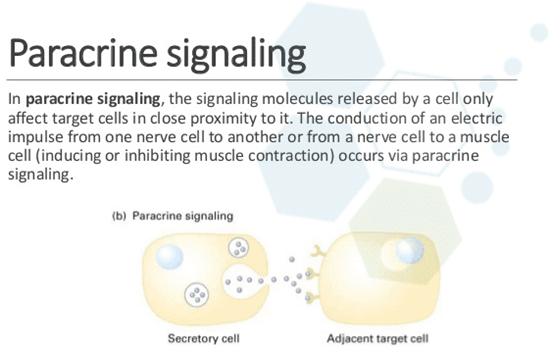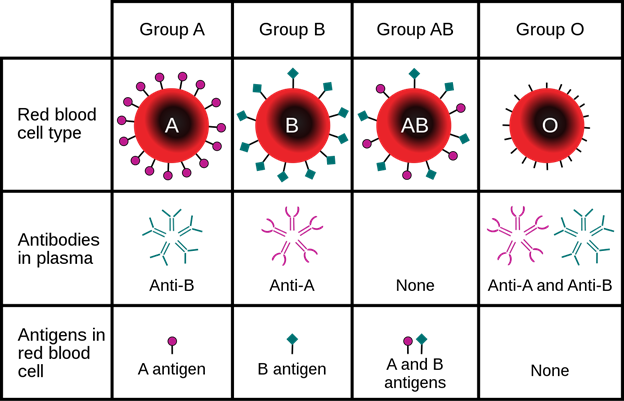Secretions that affect only nearby cells are termed:
Autocrine.
Endocrine.
Exocrine.
Paracrine.
The Correct Answer is D
Paracrine secretions are chemical signals that affect only nearby cells.

They are released by the sending cell and diffuse through the extracellular space to the target cell, which has a specific receptor for the signal.
Paracrine signaling is a form of local signaling that occurs in multicellular organisms.
Choice A is wrong because autocrine secretions are chemical signals that act on the same cell that produced them.
Autocrine signaling is also a form of local signaling, but it involves cell signaling itself.
Choice B is wrong because endocrine secretions are chemical signals that are secreted into the blood and act at long distances.
Endocrine signaling is a form of long-range signaling that involves ductless glands that secrete hormones.
Choice C is wrong because exocrine secretions are non-hormonal substances that are secreted into ducts to the external environment.
Exocrine signaling is not a form of cell-cell communication, but rather a way of releasing substances such as sweat, saliva, or digestive enzymes.
Nursing Test Bank
Naxlex Comprehensive Predictor Exams
Related Questions
Correct Answer is D
Explanation
This is because blood type AB has both A and B antigens on the surface of red blood cells.

Antigens are protein molecules that can trigger an immune response if they are foreign to the body.
Choice A is wrong because antigen B only is present in blood type B.
Choice B is wrong because neither antigens A nor B are present in blood type O.
Choice C is wrong because antigen A only is present in blood type A.
Normal ranges for blood types vary by population, but according to the NHS, about 3% of people in the UK have blood type AB.
Correct Answer is B
Explanation
The correct answer is choice B. False.
Arteries are strong, elastic vessels that carry blood away from the heart, except for the coronary arteries that supply blood to the heart muscle.
These are the first arteries to branch off the aorta, which is the main artery that takes blood to the body from the left ventricle.
Choice A is wrong because it contradicts the definition of arteries. Arteries carry blood away from the heart, not to the heart.
Whether you are a student looking to ace your exams or a practicing nurse seeking to enhance your expertise , our nursing education contents will empower you with the confidence and competence to make a difference in the lives of patients and become a respected leader in the healthcare field.
Visit Naxlex, invest in your future and unlock endless possibilities with our unparalleled nursing education contents today
Report Wrong Answer on the Current Question
Do you disagree with the answer? If yes, what is your expected answer? Explain.
Kindly be descriptive with the issue you are facing.
